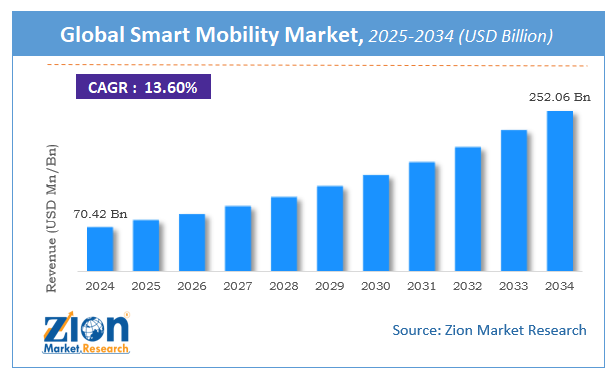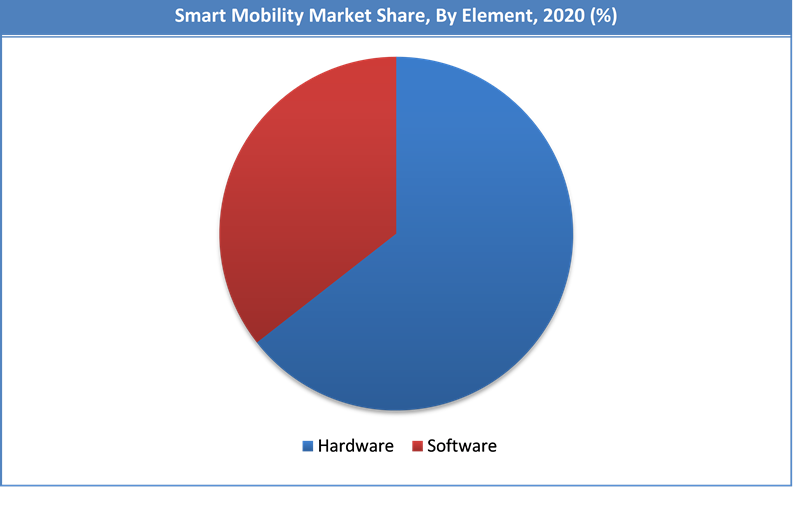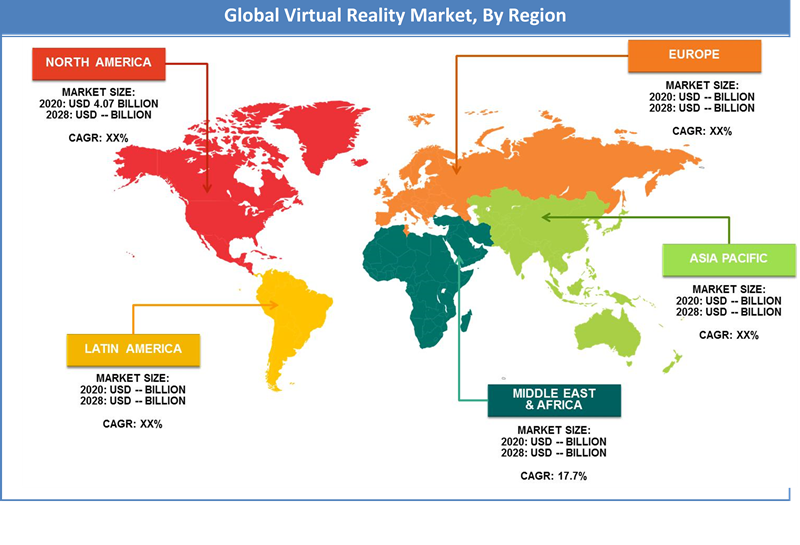Smart Mobility Market Size, Share, Growth Report 2032

Smart Mobility Market Size - By Element (Ride Sharing, Car Sharing and Bike Commuting), By Solution (Traffic Management, Parking Management, Mobility Management and Others), By Technology (RFID, GPS, Embedded System, Wi-Fi, 3G & 4G, and Others): Global Industry Perspective, Comprehensive Analysis and Forecast, 2020 - 2028
| Market Size in 2020 | Market Forecast in 2028 | CAGR (in %) | Base Year |
|---|---|---|---|
| USD 38.21 Billion | USD 148.91 Billion | 18.74% | 2020 |
Smart Mobility Market Size & Overview
The Global Smart Mobility market size accounted for USD 38.21 Billion in 2020 and is expected to reach USD 148.91 Billion by 2028, growing at a CAGR of 18.74% from 2021 to 2028.
To know more about this report, request a sample copy.
Smart mobility is one of the primary needs for the development of smart cities. Smart technology, smart mobility smart infrastructure smart governance is also vital for the development of smart cities. Smart mobility is concerned with offering intelligent transportation solutions through the use of new and integrated technologies and solutions that are environmentally friendly and also enhance social mobility.
The term "smart mobility" refers to the incorporation of cutting-edge technologies and forward-thinking solutions into existing transportation networks in order to enhance those networks in terms of their effectiveness, safety, and environmental friendliness. Connected cars, electric vehicles, autonomous vehicles, mobility-as-a-service (MaaS) platforms, and smart transportation infrastructure are just some of the products and services that fall under the purview of the smart mobility market.
In recent years, the global market for smart mobility has experienced significant expansion, which can be attributed to a number of factors including the rise in urbanization, the rise in demand for environmentally friendly transportation solutions, and developments in technology.
The growing number of people who drive electric cars is one of the most important factors propelling the smart mobility market (EVs). Electric vehicles are becoming an increasingly popular option for individuals and governments alike as a means of transportation that is both less harmful to the environment and more compatible with long-term sustainability goals. In addition, developments in battery technology and infrastructure for charging are making electric vehicles more practical and convenient for day-to-day use.
The increased need for MaaS systems, which give customers access to a multitude of transportation options through a single app or platform, is another factor that is driving the smart mobility market. MaaS platforms are especially popular in urban areas since they provide an alternative to car ownership, can aid in the reduction of traffic congestion, and can enhance air quality.
Also, it is anticipated that autonomous vehicles will play a key part in the smart mobility sector in the years to come. Self-driving cars and trucks are already being tested and deployed in select locations, and it is anticipated that they will become more common in the coming years. While the widespread adoption of fully autonomous vehicles may still be a few years away, it is expected that self-driving cars and trucks will become more common in the coming years.
In general, it is anticipated that the market for smart mobility will keep expanding over the next few years. This growth is anticipated to be driven by an increasing demand for environmentally friendly transportation solutions, advances in technology, and government support for smart transportation infrastructure.
COVID-19 Impact Analysis
The demand for smart mobility has been steadily expanding over time. However, due to the outbreak of the COVID-19 pandemic, the smart mobility sector has seen a significant drop. The pandemic resulted in an increase in automobile ownership in order to restrict the use of public transportation and reduce direct contact with other individuals.
Growth Factors
There are several factors that are responsible for the growth of the smart mobility market such as supportive government initiatives for smart cities and rising demand for on-demand transportation solutions, the smart mobility market has a bright future. All of these factors have resulted in a surge in smart mobility usage, which is driving the global smart mobility market forward. Furthermore, expanding network infrastructure and increased usage of smart mobility for fleet management are also contributing to overall market growth. On the other hand, there are some roadblocks to the smart mobility market's growth, such as limited internet penetration in emerging nations and the risk of data hacking.
Smart Mobility Market Report Scope :
| Report Attributes | Report Details |
|---|---|
| Report Name | Smart Mobility Market Research Report |
| Market Size in 2020 | USD 38.21 Billion |
| Market Forecast in 2028 | USD 148.91 Billion |
| Compound Annual Growth Rate | CAGR of 18.74% |
| Number of Pages | 110 |
| Forecast Units | Value (USD Billion), and Volume (Units) |
| Key Companies Covered | Cardinal matrix, Cisco Systems Inc., Toyota Motor Corporation, Siemens AG, TomTom N.V., Robert Bosch GmbH, Excelfore Corporation, Ford Motor Company, among others. |
| Segments Covered | By Element, By Solution, By Technology, And By Region |
| Regions Covered | North America, Europe, Asia Pacific (APAC), Latin America, Middle East, and Africa (MEA) |
| Countries Covered | North America: U.S and Canada Europe: Germany, Italy, Russia, U.K, Spain, France, Rest of Europe APAC: China, Australia, Japan, India, South Korea, South East Asia, Rest of Asia Pacific Latin America: Brazil, Argentina, Chile The Middle East And Africa: South Africa, GCC, Rest of MEA |
| Base Year | 2021 |
| Historical Year | 2017 to 2021 |
| Forecast Year | 2022 - 2030 |
| Customization Scope | Avail customized purchase options to meet your exact research needs. Request For Customization |
Element Analysis Preview
The element segment is expected to grow at a CAGR of XX% during the forecast period. Due to its widespread adoption, ridesharing received the highest revenue share in 2019. However, due to the widespread acceptance of car sharing, the segment is expected to rise at a rapid pace over the forecast period, contributing to the worldwide smart mobility market's growth. The element segment is bifurcated into three categories ride-sharing, car-sharing, and bike commuting.
Technology Segment Analysis Preview
The technology segment is expected to grow at a CAGR of XX% during the forecast period. In 2019, the RFID market under the technology segment is anticipated to dominate the global smart mobility market, with a CAGR of 16.6% during the forecast period. Furthermore, the GPS market is anticipated to grow at an annual rate of XX% in the forecast period. Due to the rising use of GPS in automobiles for smarter route planning, automated real-time alerts, and better customer service. Embedded systems, Wi-Fi, 3G & 4G and others form the remaining of the technology segment.
Regional Analysis Preview
North America accounted for the larger share of 34% in 2020. Due to a surge in the adoption of the smart mobility concept in North America, the United States gained a significant revenue share in 2019 and is expected to increase at a significant rate over the forecast period.
Asia Pacific is projected to grow at a CAGR of over XX% during the forecast period. DUE to the increased government spending along with the acceptance of more eco-friendly mobility solutions in developing regions the demand for smart mobility is evident in the forecast period.
Key Market Players & Competitive Landscape
Some of the key players in the smart mobility market are
- Cardinal matrix
- Cisco Systems Inc.
- Toyota Motor Corporation
- Siemens AG
- TomTom N.V.
- Robert Bosch GmbH
- Excelfore Corporation
- Ford Motor Company
Some of the recent developments include TomTom's agreement with precisely, the world's leading data integrity company, which was extended in February 2021. Precisely customers can utilize TomTom's top map and traffic information to make better-informed, more confident business decisions. TomTom's highly accurate map data, as well as historic and real-time traffic data, are utilized precisely.
The Smart Mobility market is segmented as follows:
By Element
- Ride Sharing
- Car Sharing
- Bike Commuting
By Solution
- Traffic Management
- Parking Management
- Mobility Management
- Others
By Technology
- RFID
- GPS
- Embedded System
- Wi-Fi
- 3G & 4G
- Others
By Region
- North America
- The U.S.
- Canada
- Europe
- France
- The UK
- Spain
- Germany
- Italy
- Rest of Europe
- Asia Pacific
- China
- Japan
- India
- South Korea
- Southeast Asia
- Rest of Asia Pacific
- Latin America
- Brazil
- Mexico
- Rest of Latin America
- Middle East & Africa
- GCC
- South Africa
- Rest of Middle East & Africa
Table Of Content
Methodology
FrequentlyAsked Questions
The Smart Mobility market was valued at USD 38.21 Billion in 2020.
The Smart Mobility market is expected to reach USD 148.91 Billion by 2028, growing at a CAGR of 18.74% between 2021 to 2028.
There are several factors which are responsible for the growth of the smart mobility market such as supportive government initiatives for smart cities and rising demand for on-demand transportation solutions, the smart mobility market has a bright future. All of these factors have resulted in a surge in smart mobility usage.
North America accounted for the Highest share of 34% in 2020. Due to a spike in adoption of the smart mobility concept in North America, the United States gained a significant revenue share in 2019 and is expected to increase at a significant rate over the forecast period. North America is expected to account for the highest growing CAGR and emerge as the superpower in smart mobility market.
Some of key players in Smart Mobility market include Cardinal matrix, Cisco Systems Inc., Toyota Motor Corporation, Siemens AG, TomTom N.V., Robert Bosch GmbH, Excelfore Corporation, Ford Motor Company, among others.
The term "smart mobility" refers to the implementation of cutting-edge technologies and forward-thinking solutions with the goal of enhancing the effectiveness, safety, sustainability, and accessibility of transportation networks. It entails making use of data and digital technology in order to maximize the flow of people and things throughout urban and rural areas.
The concept of "smart mobility" refers to the utilization of a variety of transportation options, including personal and public automobiles, bicycles, foot travel, and public transportation. It seeks to develop a transportation network that is unified and interconnected, sensitive to the requirements of users, and able to make real-time adjustments in response to shifting environmental conditions.
RelatedNews
HappyClients
Zion Market Research
Tel: +1 (302) 444-0166
USA/Canada Toll Free No.+1 (855) 465-4651
3rd Floor,
Mrunal Paradise, Opp Maharaja Hotel,
Pimple Gurav, Pune 411061,
Maharashtra, India
Phone No +91 7768 006 007, +91 7768 006 008
US OFFICE NO +1 (302) 444-0166
US/CAN TOLL FREE +1 (855) 465-4651
Email: sales@zionmarketresearch.com
We have secured system to process your transaction.
Our support available to help you 24 hours a day, five days a week.
Monday - Friday: 9AM - 6PM
Saturday - Sunday: Closed








